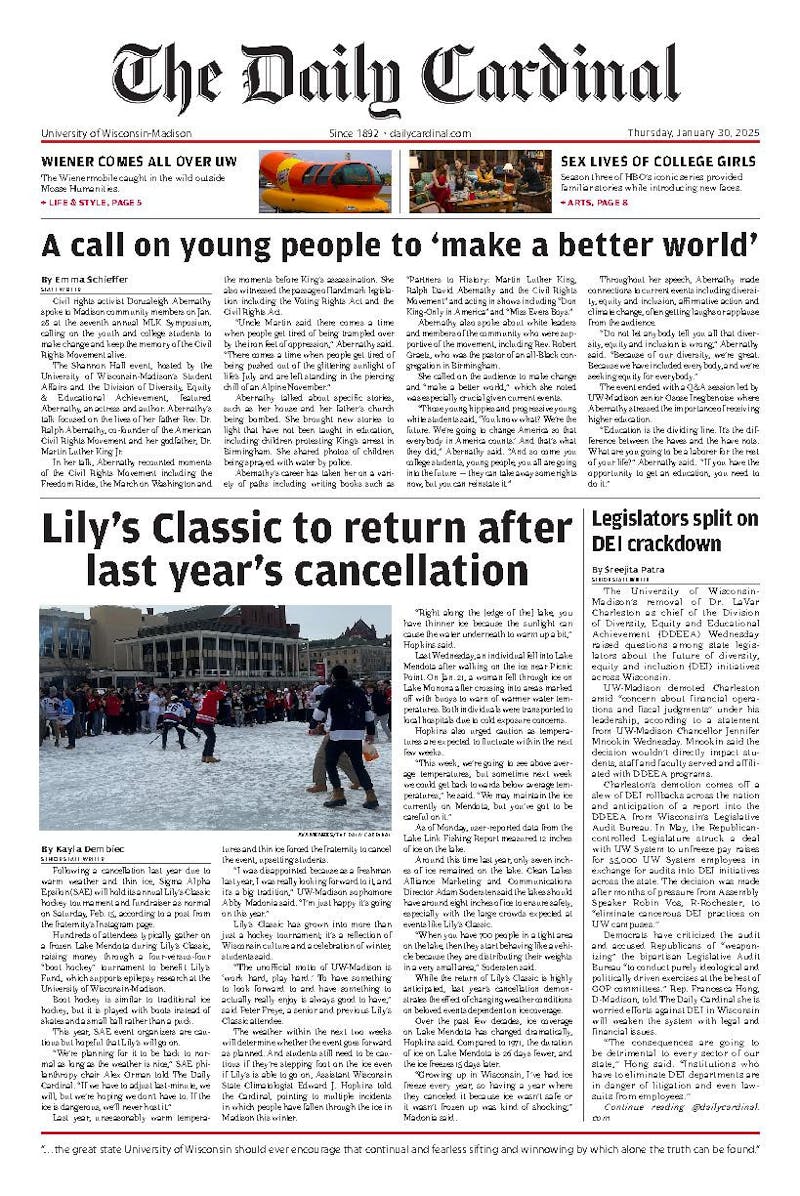Mary Burke, a former executive with Trek Bicycle and the state’s former commerce secretary, became the new Democratic front runner in the 2014 gubernatorial election after she officially announced her candidacy Monday.
Burke was rumored to be interested in running before Monday, but her approximately three-minute video served as confirmation. Burke will run a campaign centered on job creation and economic growth, according to her announcement video, something she said she has become well-versed in after leading Trek’s strategic planning for approximately 10 years.
Soon after the video was released, the Republican Party of Wisconsin devoted large portions of its website, including the top of its homepage to advertising against Burke, with a main message that says “Mary Burke will take us backward.” The site also promotes visitors to “get the facts” at MaryBurke.com.
Burke’s central focus in her video was her economic experience and her connection to Wisconsin.
In addition to leading Trek’s strategic planning team, Burke said in the video she has gained economic experience while also serving as director of European operations.
Burke also served as the state’s secretary of commerce after former Gov. Jim Doyle appointed her to the position in 2005 and said she will use her experience in the position to boost the state’s economic ranking.
“I’m running for governor because we can do better than [45th in the nation]. A lot better,” Burke said in the video. “But to do it, we've got to make some real changes in Madison.”
Joe Fadness, the executive director of the Republican Party of Wisconsin, said in a statement Burke is an “out-of-touch Madison millionaire” who will raise taxes and weaken the state’s economy.
“As someone who embraces the failed policies of the past, it’s clear that the millionaire activist will have a hard time connecting with Main Street, Wisconsin,” Fadness said in the statement.
Burke and Walker could spend a combined $70 million on the gubernatorial race given their financial resources, said Kenneth Mayer, a University of Wisconsin-Madison political science professor.
Their campaigns will likely focus on the “middle” voters who are not as ideologically committed, Mayer said.





